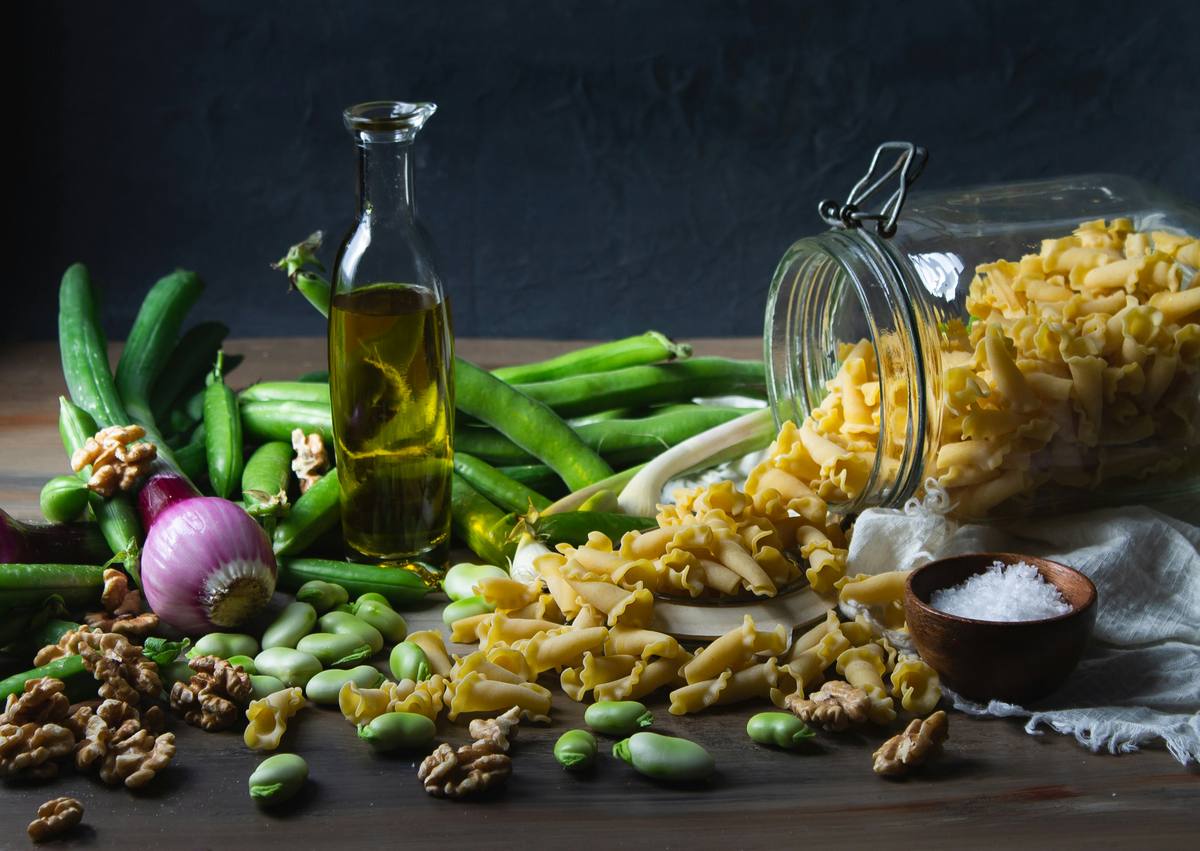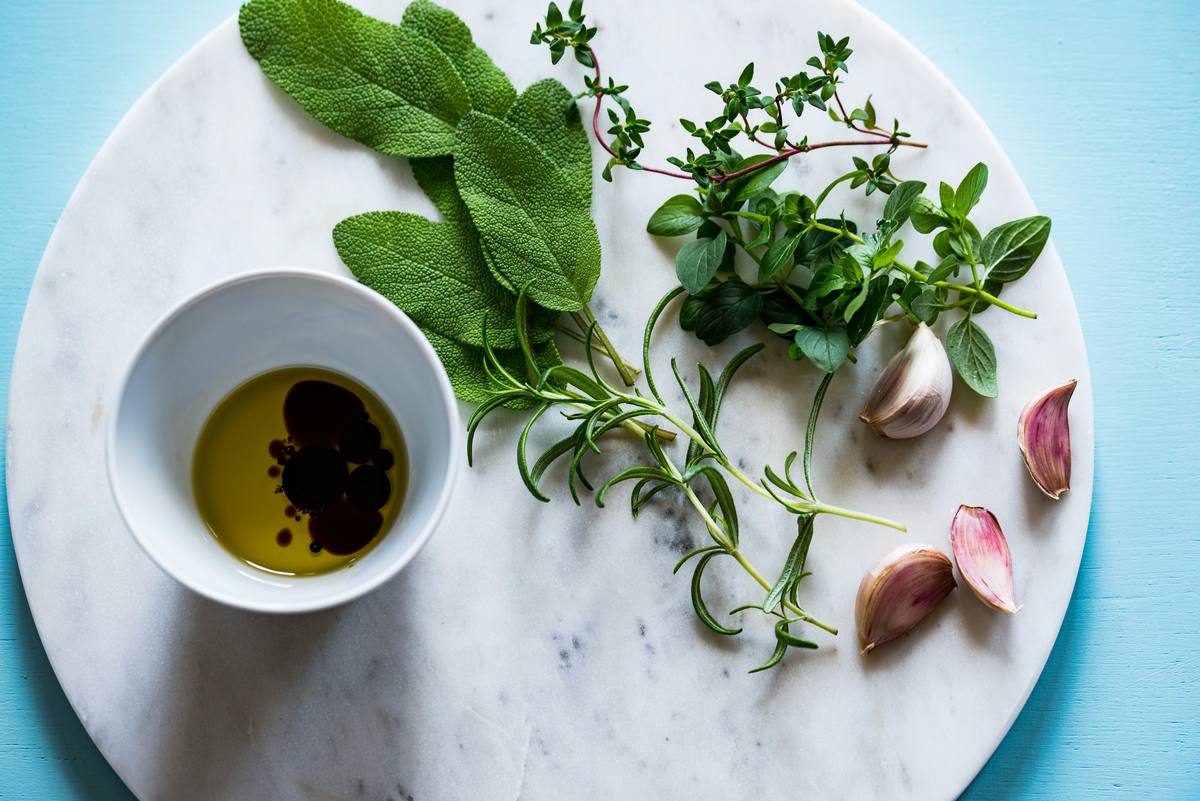Launching Your Dream Olive Oil Venture
Kickstarting an Olive Oil business is an exhilarating adventure that combines the love for culinary excellence with entrepreneurial spirit. The first step involves immersing yourself in the world of olives, understanding different varieties and their unique flavors. Securing a source of high-quality olives is paramount; hence, building strong relationships with local farmers or considering your own olive grove can be beneficial. Next, mastering the art of oil extraction and staying updated with modern pressing techniques will set the foundation of your product's uniqueness. Crafting a memorable brand identity and story is crucial in connecting with your audience, making your olive oil not just a product but an experience. Leveraging tools like Desygner can empower you to create captivating labels and packaging that resonate with your brand's essence.

The Initial Hurdles in the Olive Oil Industry
Embarking on the journey of starting an olive oil business is thrilling yet fraught with challenges. One of the most significant hurdles is understanding the complexities of olive oil production, which requires a deep knowledge of agricultural practices and the olive oil extraction process. Moreover, securing high-quality olives is another paramount challenge, as this directly influences the quality of the final product. Another obstacle that often catches many by surprise is navigating through the regulatory requirements, which can vary widely by region and are essential for ensuring product safety and quality. Additionally, establishing a brand in a market that already has well-established players requires creativity and strategic planning.
Understanding consumer preferences and market trends is crucial when determining the types of olive oil to produce. The industry offers a range of products, from extra virgin to light olive oil, each with its own production standards and target market. Financing the venture also poses a significant challenge, as starting an olive oil business requires substantial initial investment in equipment, land for growing olives or sourcing them, and marketing efforts to build brand recognition. Establishing direct sales channels or finding reliable distributors can be daunting but is critical for reaching potential customers efficiently. Lastly, staying abreast of technological advancements in production and processing can provide a competitive edge but requires ongoing investment.

Finding Your Niche in the Olive Oil Market
To stand out in the crowded olive oil market, identifying a unique selling proposition (USP) is essential. This could involve specializing in organic olive oils, focusing on single-origin oils that appeal to gourmet consumers, or emphasizing sustainable farming practices that resonate with eco-conscious buyers. Understanding your target audience's preferences and values helps tailor your marketing messages and product offerings effectively. Additionally, offering product experiences such as tastings or tours of your olive groves can create a memorable brand impression. Collaboration with local chefs or restaurants to showcase your olive oil in their dishes can also increase visibility and credibility.
Developing a strong brand identity is crucial for connecting with consumers and building loyalty. This includes everything from choosing a compelling brand name to designing attractive packaging that reflects the quality and essence of your olive oil. Investing time in crafting your brand's story can significantly impact its perception in the marketplace. Engaging with your audience through social media and content marketing can help tell this story effectively, creating an emotional connection with potential customers. Maintaining consistency across all touchpoints ensures a cohesive brand experience that can foster trust and recognition over time.

The Importance of Quality Control
Maintaining high standards of quality control is pivotal for success in the olive oil business. This begins with meticulous attention to the health and maintenance of olive trees to ensure high-quality fruit production. The timing of the harvest also plays a crucial role, as olives must be picked at their optimal ripeness to achieve the desired flavor profile for the oil. Implementing rigorous processes during extraction and bottling further ensures that the quality of the olive oil remains uncompromised. Regular testing for acidity levels and sensory attributes helps maintain consistency across batches.
Beyond production, educating consumers about your quality control measures can enhance your brand's reputation and customer trust. Transparency about sourcing, production practices, and certifications like organic or PDO (Protected Designation of Origin) can differentiate your product in a competitive market. Offering detailed information on labeling, including harvest dates and best-before dates, provides assurance about freshness and quality. Participating in olive oil competitions and earning awards can also serve as third-party validation of your commitment to quality. Ultimately, delivering an exceptional product consistently builds a loyal customer base willing to pay a premium for superior olive oil.

Boost campaigns with 250+ editable templates. Save, reuse, and wield design tools for business growth.
Try it for FREE!Leveraging Technology for Marketing Success
In today's digital age, leveraging technology for marketing is non-negotiable for businesses looking to thrive. Creating a visually appealing website serves as your digital storefront where potential customers can learn more about your products, production philosophy, and purchase directly. Utilizing search engine optimization (SEO) strategies ensures that your site appears prominently when people search for relevant keywords related to olive oil. Social media platforms offer powerful tools for storytelling,connecting with your audience on an emotional level through engaging content about your groves,harvesting process, or delicious recipes featuring your olive oil.
Email marketing campaigns are another effective tactic for keeping your audience engaged while promoting new products or special offers directly to their inbox.However, managing multiple digital marketing channels requires considerable timeand effort.This is where tools like Desygner come into play,offering easy-to-use design solutions that help create professional-looking marketing materials,from social media posts to email newsletters,efficiently.By harnessing such technologies,even small-scale olive oil producers can achieve impactful marketing results.
Key Takeaways for Launching Your Olive Oil Venture
In conclusion, starting an olive oil business requires a blend of passion, knowledge, and strategic planning. The journey from the olive orchard to the consumer's table is paved with challenges, yet it offers a rewarding opportunity for those who navigate it wisely. As we've explored, understanding your market, crafting a distinctive brand, and committing to quality are foundational steps to success.
Further emphasizing sustainability and ethical sourcing can distinguish your brand in a crowded marketplace. By aligning with modern consumers' values, you create not just customers but advocates for your brand. Additionally, leveraging technology and innovative marketing strategies will enhance your visibility and appeal in the digital age.
To ensure a smooth launch and sustained growth, here are eight crucial points to consider:
- Develop a comprehensive business plan that outlines your vision, goals, and strategies.
- Conduct thorough market research to identify your target audience and competition.
- Source high-quality olives and maintain strict quality control processes.
- Create a compelling brand identity that resonates with your target market.
- Embrace sustainable practices in every aspect of your operations.
- Invest in effective online marketing strategies to reach a broader audience.
- Build a user-friendly website and utilize social media platforms for engagement.
- Leverage tools like Desygner for professional-grade design assets without the hefty price tag.
Incorporating these elements into your business strategy will set the foundation for a successful olive oil enterprise. Remember, the key is not just to start but to sustain and grow. So embark on this journey with courage, creativity, and conviction. And if you're looking to elevate your branding or marketing materials effortlessly, consider signing up at Desygner today. Your olive oil brand deserves a look as premium as its taste.


